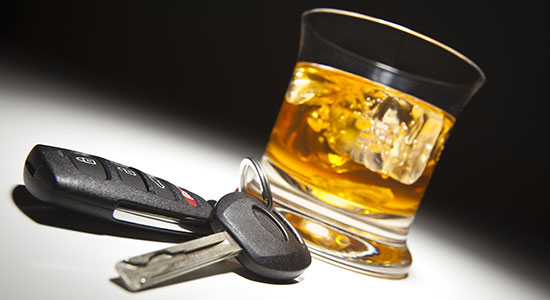
Jan. 3, 2019 – The Wisconsin Supreme Court has upheld a conviction for operating while intoxicated (OWI), second offense, even though a circuit court ordered expunction of the defendant’s first OWI conviction, five years earlier, from his court record.
In State v. Braunschweig, 2018 WI 113 (Dec. 21, 2018), the supreme court ruled (7-0) that an expunged OWI must be counted when determining penalties for multiple OWIs, and the state must prove the prior OWI by a preponderance of the evidence.
Courts may order expungement of a court record for those who commit crimes while under the age of 25, under Wis. Stat. section 973.015, if the court believes the person will benefit and society will not be harmed by the disposition.
In 2011, the Jackson County Circuit Court ordered expunction after Justin Braunschweig was convicted of injuring a person by intoxicated operation of a vehicle. The expunction decision applied once Braunschweig completed his sentence.
About five years later, Braunschweig was arrested and charged with OWI, second offense, and a prohibited alcohol concentration of 0.16. To charge him with a second offense, the state relied on the 2011 conviction, through a certified driving record.
Braunschweig argued the state could not rely on the expunged OWI to charge him with a second offense. The circuit court rejected that argument, as well as Braunschweig’s argument that the state must prove the prior OWI beyond a reasonable doubt.
Upon conviction, Braunschweig immediately appealed and the appeals court affirmed. The supreme court reviewed the case to determine whether the state could rely on the expunged conviction and the burden of proof that applies in such cases.
Expunged OWI
The supreme court noted that penalties increase for each subsequent OWI-related offense, but in this case, the prior conviction was expunged from the record.
“The issue is whether that prior expunged conviction counts as a prior predicate offense,” wrote Justice Annette Ziegler, noting that when a record is expunged, “the clerk of court seals the case and destroys the court records.”
But that does not mean the conviction is invalidated, as it would be if a conviction were vacated. “Expunction, unlike vacatur, does not invalidate the conviction,” Ziegler wrote.
“[W]hile the expunction of court records of a conviction is intended to benefit a young offender, one of the benefits is not that the underlying conviction is vacated,” concluded Justice Ziegler, noting that expunged convictions still remain on driving records.
Under prior precedent, sentencing courts cannot consider court records of expunged convictions, but non-court records can be considered for repeater sentence enhancement purposes. Thus, the court could consider a driving record.
“A certified DOT record is a ‘source other than a court record’ that may be considered to prove the predicate expunged offense,” wrote Ziegler, noting the expunction statute explicitly does not apply to records maintained by the department of transportation.
Finally, the court ruled that the state must prove a prior OWI conviction by a preponderance of the evidence, because a “predicate prior is not an element the State has to prove beyond a reasonable doubt.” Here, a certified DOT record was enough.
